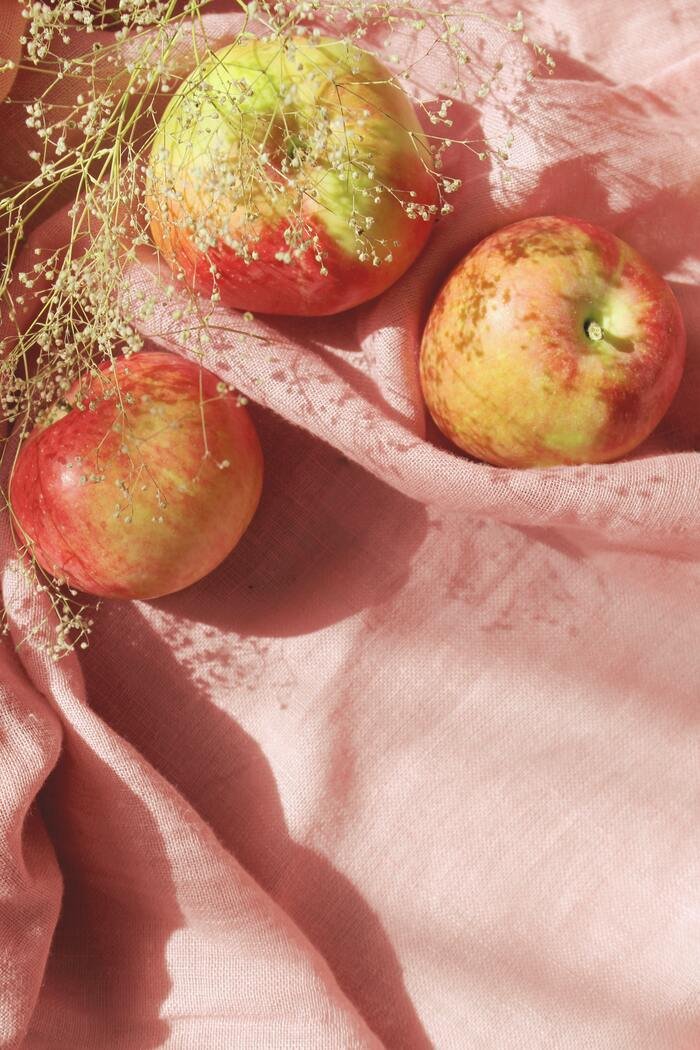The Perfect Winter Salad Recipe: Delicious, Healthy, and Seasonal
I always crave fresher foods after a spate of fatty meals (particularly around the holidays!). However, it has to be quick because I'm still recovering from all the work that went into making the decadent cuisine and the large meals.
I aimed to create a festive salad that was vibrant, fresh and filling enough to serve as a dinner on its own. And the one that only necessitates a little winter veggie cutting.
You'll be pleased to learn that this nutritious winter meal satisfies all criteria, including being in season. (And all you have to do is chop an apple!)
Last but not least, I made this salad for our Christmas family gathering, and everyone enjoyed it so much that I was asked to share the recipe. There is an exciting level of satisfaction when you help people learn how to enjoy veggies.
INGREDIENTS
For The Salad:
6 oz. shredded kale
1/2 small lemon, juiced
1 tbsp. extra-virgin olive oil
6 oz. shredded vegetables, such as Brussels sprouts, Cabbage, and Carrots
2 medium apples, cored and diced
1 1/2 regular pecans
4 oz. crumbled goat cheese
1 1/2 c. roasted butternut squash
1/2 c. pomegranate arils
For The Dressing:
1/2 c. red wine vinegar
1/2 c. extra-virgin olive oil
4 tsp. whole grain or Dijon mustard
4 tsp. pure maple syrup
1/4 tsp. sea salt
1/4 tsp. ground black pepper
HOW TO MAKE THE PERFECT WINTER SALAD?
Place the chopped kale in a big salad dish. Add extra virgin olive oil and lemon juice. Massage the greens with your hands for about a minute while applying the lemon juice and olive oil. The greens should start to wilt slowly and turn a rich shade of green.
Add the remaining shredded veggies, together with the pecans and apple, to the bowl.
To make the dressing, combine all ingredients in a glass jar with a cover or a canning jar. After giving it a 30-second vigorous shake, pour it over the salad. Mix well.
Top with butternut squash, goat cheese that has been crumbled, and pomegranate seeds. Serve.
HEALTH BENEFITS
PUMPKINS
Although it makes a delicious pie and provides vitamins A, C, and E, the zinc in roasted pumpkin seeds can help women ovulate and men produce higher-quality sperm and more semen. Indulge!
Winter squash
Many winter squashes, including butternut squash, can increase fertility, just like their pumpkin relative. For instance, butternut squash, which is high in fiber and the antioxidant beta carotene, can help regulate hormones and improve the integrity of both eggs and sperm by preventing free radical damage.
POMEGRANATES
a. Enhanced Digestion
Pomegranates' high fiber content makes them a useful food for controlling bowel movements and enhancing gut health. This will lessen your risk of stomach issues and bowel disorders in addition to helping to alleviate constipation and stomach discomfort.
b. Increases Fertility
Pomegranates are a good source of antioxidants, which will aid to improve uterine blood flow and support a healthy uterine lining. Pomegranates also provide certain essential vitamins like folic acid, vitamin E, and vitamins C and E. All of these are advantageous for healthy pregnancies as well as for infertility patients.
GOAT MILK
Compared to cow milk, goat milk is somewhat lower in lactose, vitamin D, and riboflavin but slightly more in fat and minerals. Cow's milk has bigger fat molecules than goat's milk, which makes it more difficult to digest and gives it a heavier texture. People who are lactose intolerant may be able to consume goat's milk cheese since it has smaller fat molecules and less lactose than cow's milk cheese.
Contains A2 casein instead of A1
The protein casein is the most prevalent in goat and cow milk. It also makes up a sizeable portion of the protein in cheese. It has been discovered that the casein variation found in cow cheese causes type 1 diabetes and insulin resistance. However, goat cheese has a different type of casein (A2 beta-casein) and more calcium (251 mg per ounce), which can reduce your risk of diabetes and improve your sensitivity to insulin.






